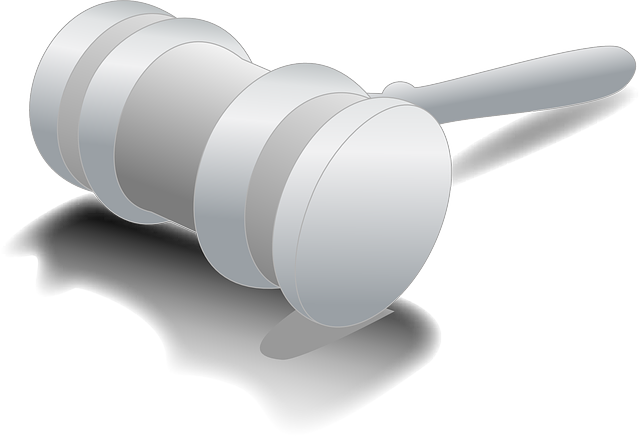Calculating damages in personal injury cases involves assessing medical expenses, lost wages, pain and suffering, and other costs, ensuring fair compensation tailored to injury severity. Distinguishing between economic and non-economic losses is key, requiring robust evidence and expert opinions for non-monetary damages. Pain and suffering assessment considers physical/emotional distress, injury severity, healing duration, and permanent disabilities. In medical malpractice cases, punitive damages may be awarded for willful disregard or intentional misconduct, aiming to deter future actions. Meticulous documentation and legal arguments are vital for successful outcomes.
In the intricate landscape of healthcare, legal issues surrounding personal injury cases navigate a complex web of regulations. This article delves into crucial aspects of understanding and navigating these challenges. We explore fundamental concepts like personal injury laws and liability, evaluating economic and non-economic losses, and calculating damages for pain and suffering. Additionally, we scrutinize medical expenses, reimbursement, and negligence, as well as the impact of punitive damages in cases of malpractice. By shedding light on these key areas, this guide aims to empower individuals navigating healthcare legal issues, emphasizing the significance of Calculating Damages in Personal Injury Cases.
- Understanding Personal Injury Laws and Liability
- Evaluating Economic and Non-Economic Losses
- Calculating Pain and Suffering Damages
- Medical Expenses: Reimbursement and Negligence
- Punitive Damages: Consequences of Malpractice
Understanding Personal Injury Laws and Liability
Personal injury laws play a pivotal role in healthcare legal issues, shaping how compensation is determined for victims harmed due to someone else’s negligence or intentional actions. Understanding liability under these laws is essential, as it dictates who is responsible and to what extent they may be held accountable. In personal injury cases, calculating damages is a crucial process that considers various factors such as medical expenses, lost wages, pain and suffering, and other relevant costs incurred as a result of the injury. This meticulous calculation ensures victims receive fair compensation for their losses, which can vary widely depending on the severity of injuries and associated long-term effects.
In high-stakes cases, where significant injuries or complex medical issues are involved, calculating damages becomes even more intricate. The general criminal defense strategies may not always apply, as personal injury lawsuits often require a nuanced approach that accounts for all stages of the investigative and enforcement process. Legal professionals must navigate a web of regulations, precedents, and specific legal frameworks governing personal injury to ensure their clients’ rights are protected and they receive just recompense for their injuries.
Evaluating Economic and Non-Economic Losses
When assessing legal damages in personal injury cases, it’s crucial to differentiate between economic and non-economic losses. Economic losses refer to tangible expenses like medical bills, lost wages, and property damage, which can often be calculated with relative ease. Non-economic losses, on the other hand, encompass more subjective categories such as pain and suffering, emotional distress, and loss of quality of life. Accurately evaluating these non-monetary damages is a complex task that requires a nuanced understanding of the respective business and its impact on the victim’s well-being.
A winning challenging defense verdict in personal injury cases often hinges on this meticulous calculation of damages. Legal professionals must present compelling evidence and expert testimony to justify the requested compensation, especially when aiming for a complete dismissal of all charges. This involves thoroughly documenting each aspect of the harm sustained, ensuring that every element of damage is accounted for in a way that resonates with the jury or judge deciding the case.
Calculating Pain and Suffering Damages
In personal injury cases, one of the key aspects in calculating damages is assessing pain and suffering. This involves considering both physical and emotional distress experienced by the victim. Courts often use a multi-factor approach to determine fair compensation, taking into account the severity of injuries, duration of healing process, impact on quality of life, and any permanent disabilities. The goal is to provide a measure of justice that reflects the genuine harm suffered.
Expert witnesses play a crucial role in these cases, offering insights based on medical records and professional assessments. This is especially important when dealing with complex or rare injuries. In instances of white collar and economic crimes, where pain and suffering might not be immediately visible, achieving extraordinary results may require meticulous documentation and persuasive legal arguments to ensure victims receive the compensation they deserve across the country.
Medical Expenses: Reimbursement and Negligence
In personal injury cases, calculating damages, especially when it comes to medical expenses, is a critical aspect of achieving justice and compensation. The process involves assessing and reimbursing the actual costs incurred due to negligence or misconduct. This includes medical treatments, hospital stays, surgeries, and prescription medications—all essential for a patient’s recovery. Reimbursement ensures that victims are not burdened with unexpected healthcare costs, which can be overwhelming, especially across the country where medical expenses vary significantly.
Negligence in healthcare can lead to severe consequences, and when proven, patients may seek extraordinary results through legal action. This involves calculating damages that encompass not just immediate medical bills but also long-term care needs, permanent disabilities, and pain and suffering. The goal is to ensure that healthcare providers are held accountable for their actions, avoiding indictment while providing victims with the resources necessary for a full recovery.
Punitive Damages: Consequences of Malpractice
In personal injury cases stemming from medical malpractice, one significant aspect that can greatly impact a patient’s compensation is the concept of punitive damages. These damages, often referred to as punishment or retribution, are distinct from compensatory damages designed to redress losses. Punitive damages are awarded when a defendant’s actions exhibit willful disregard for safety, extreme negligence, or intentional misconduct. The purpose is not merely to compensate the victim but also to deter similar future behavior and punish the offender.
The calculation of punitive damages involves various factors, including the severity of harm caused, the defendant’s income, and the community’s interest in punishment and deterrence. Unlike compensatory damages, which aim to restore what was lost, punitive damages are intended to be a powerful deterrent. An unprecedented track record of successful defense verdicts or avoiding indictment may factor into determining the extent of these damages, showcasing a winning challenging defense strategy.
Understanding personal injury laws, evaluating losses, and calculating damages, including pain and suffering, medical expenses, and punitive damages, are crucial aspects of healthcare legal issues. When navigating these complex areas, it’s essential to remember that each case is unique, requiring careful analysis and expert advice. By recognizing the impact of malpractice and focusing on fair compensation, individuals can ensure justice and proper reimbursement for their injuries. This comprehensive approach to calculating damages in personal injury cases helps foster a safer healthcare environment and provides victims with the support they need during their recovery.






